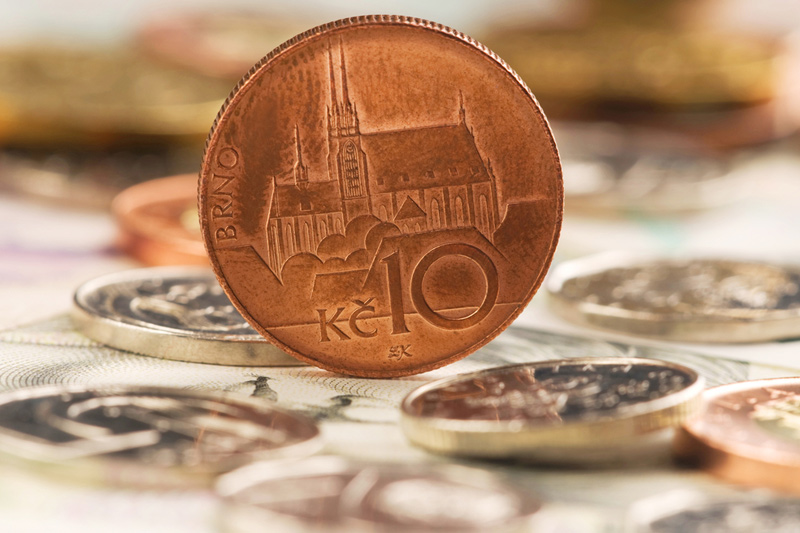(Bloomberg) -- The Czech central bank surprisingly raised interest rates, responding to a jump in consumer prices that’s outweighed worries about the global economic slowdown. The koruna soared to a seven-year high.
Policy makers raised the benchmark by a quarter-point to 2.25% on Thursday, the first hike since May and the ninth increase in two-and-a-half years. Governor Jiri Rusnok will comment on the decision at a news conference scheduled for 3:15 p.m.
The bank’s board wasn’t discouraged by the “unimpressive performance” of Germany’s economy, which is already spilling over into the Czech Republic, according to Vit Hradil, an analyst at Raiffeisenbank AS in Prague.
“The central bankers clearly don’t sees these risks as too significant and slight optimism about the future seemed to have prevailed,” Hradil said in a note.
The move contrasts with the monetary stimulus deployed by the U.S. Federal Reserve and the European Central Bank. It also differs from the cautious approach seen in other central and east European nations grappling with above-target price growth.
While several central bankers had signaled Thursday’s decision may be a close call, the rate increase surprised all analysts in a Bloomberg survey who had expected no change. Money market prices had also suggested investors were betting on a prolonged period of stable rates.
The koruna gained 0.7% to 24.905 against the euro, its strongest since October 2012 and the biggest intraday advance since June 2018.
The increase followed a period during which central bankers disregarded their internal forecast suggesting higher rates as they feared more tightening could undermine the country’s key manufacturing sectors.
Earlier on Thursday, data showed industrial production unexpectedly fell in December mainly due to a decline in the key automotive industry.
